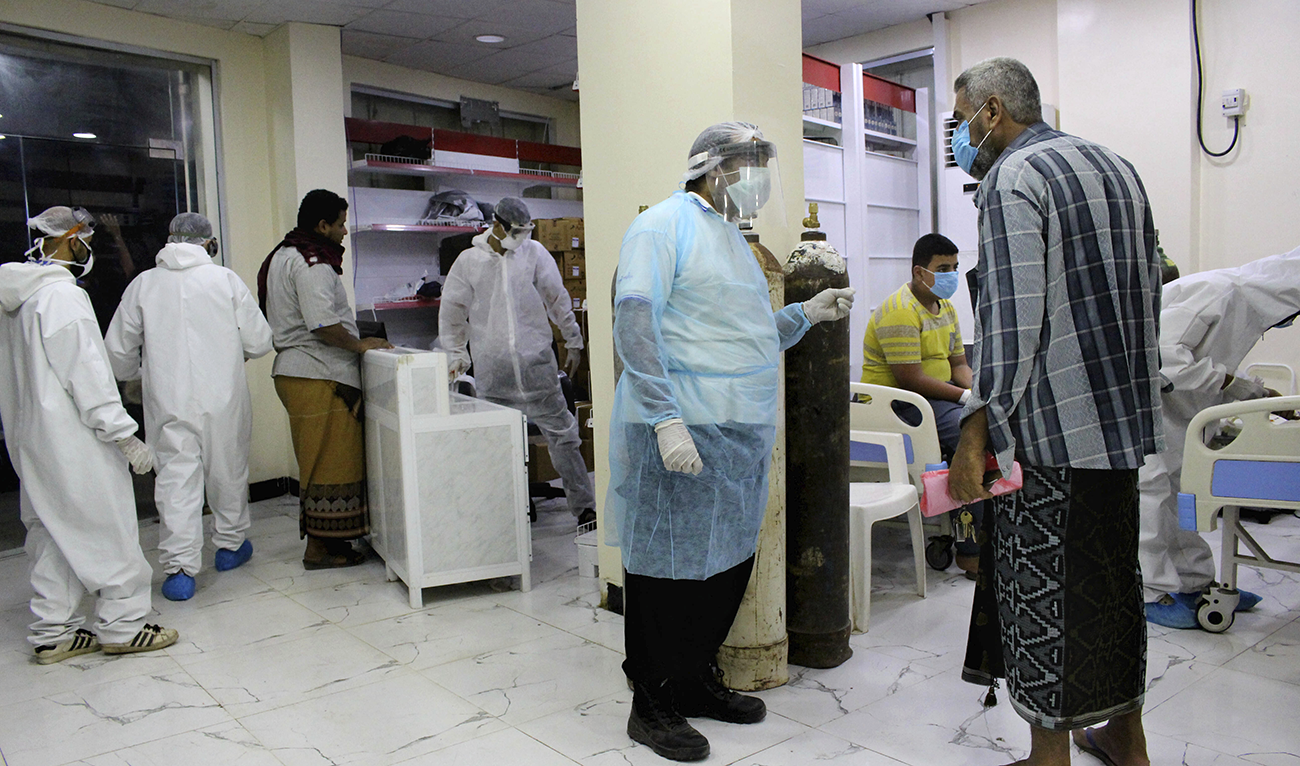AL-MUKALLA: The World Health Organization (WHO) office in Yemen has rejected a claim by Iran-backed Houthis that COVID-19 test kits provided by the organization are faulty and hampered their efforts to declare an accurate number of infections in their territories.
In a statement seen by Arab News, the WHO said that the kits were made in Germany and have been used in 120 countries.
“The batch of almost 7,000 COVID-19 test kits provided to Yemen by the WHO are the same PCR test kits provided to over 120 countries. An estimated 2 million of these kits were manufactured by TIB Molbiol, a company based in Germany,” the statement said.
Under local and international pressure to disclose accurate information about the pandemic in their territories, Houthi Health Minister Taha Al-Mutwakel said in a press conference on May 30 that one reason they did not reveal the number of infections in areas under their control was faulty testing kits that returned false positive results on non-human samples.
The WHO said: “The PCR test kits manufactured by TIB Molbiol met ISO standards for quality manufacturing. The kits were tested and validated by three external laboratories, and the validation results were published in a peer-reviewed journal.”
Despite ruling the most densely populated areas in Yemen, including the capital Sanaa, the Houthis have reported only two deaths and two recoveries.
In less-populated liberated provinces, the Aden-based National Coronavirus Committee reported on Tuesday 45 new coronavirus cases, including three deaths, bringing the total number of cases to 399, including 86 deaths and 15 recoveries.
Speaking at the virtual donors conference hosted by Saudi Arabia on Tuesday, Yemeni Prime Minister Maeen Abdulmalik Saeed said the Houthis have suppressed information about the pandemic, and intimidated Yemeni doctors and relatives of coronavirus patients who might speak out about their ordeal.
“The Houthis have rejected and disregarded all our initiatives for working together to fight the pandemic,” Saeed said.
In Aden, Dr. Ishraq Al-Subaee, a spokesman for the National Coronavirus Committee, told Arab News on Wednesday that there is no direct communication between the committee and Houthi health authorities.
“There is indirect cooperation through international agencies. There is great secrecy about the scale of the pandemic inside Houthi-controlled areas,” she said.
Suppression
Ironically, when the Houthi health chief was boasting about the health-care facilities and accusing the WHO of wrongdoing, a Houthi militia official was using social media to appeal for help after developing symptoms of COVID-19.
Ahmed Al-Hubaishi, a media adviser to the Houthi Supreme Political Council, wrote on Twitter, urging Houthi officials to send a medical team to his house. “I suffer from acute and intermittent fever, dry and severe coughing, and difficulty breathing,” he said.
Al-Hubaishi died on Wednesday of the virus. But instead of saying his father died of coronavirus based on his post, Al-Hubaishi’s son deleted his father’s old posts about his illness and said that he had died of diabetes, another indication of pressure on the families of infected people, experts said.
At the same time, new amateur videos posted on social media showed health workers in white protective clothing burying victims of COVID-19 in Sanaa and other northern provinces.
Confirmed images also show a notice from Houthis outside a closed cemetery in Sanaa, saying the cemetery was full.
Experts in Yemen believe that the health situation in Sanaa and other areas under Houthi control is dire, despite their efforts to suppress information about deaths and infections.
Ali Al-Fakih, editor of Al-Masdar Online, whose news site extensively covered COVID-19 deaths in Houthi areas, told Arab News that he had documented the deaths of at least 30 doctors since early May.
“They suppress information about the pandemic because they want life to continue as it is. The disruption of life would have an impact on their mobilization and recruitment efforts,” he said, adding that many COVID-19 patients prefer to isolate themselves at home to avoid Houthi harassment.
Al-Subaee said that her colleagues in different health facilities in Sanaa told her they receive more than 100 new virus cases every day.
“The infection has spread through society. Doctors in our Whatsapp group say that Kuwait hospital alone receives 90 coronavirus patients in 24 hours,” she said.





